Atul Singh: Welcome to the third edition of 2025’s FO° Exclusive. Last month, we covered old ghosts coming back to life in Germany, global markets being extremely nervous and the new US–Europe–Russia–Ukraine soap opera. In March 2025, our top three issues are:
- Risk of US Recession Now Rises in 2025
- Germany’s Radical New Economic Policy
- New Troubles in Gaza, Israel, Syria and Turkey
So, number one: Risk of US Recession Now Rises in 2025. So those of you who’ve been reading the financial press are probably fretting about the risk of the US recession. The US economy is certainly in danger of recession this year.
Glenn Carle: Pardon me — pardon me for interrupting. I shouldn’t be smiling, there’s nothing funny here. As a child, I always was terrified of clowns. Clowns are supposed to be, apparently, for children, happy, and they’re always part of circuses and so on. I always found them terrifying and frightening, the perversions of reality. And we are living a clown show in the American government, at the top of the American government. And so, there is nothing funny about it, and it is terrifying and the consequences are so potentially — and in the making — catastrophic that I prefer that you take the lead on this, and I will just make funny faces and say horrible things.
Atul Singh: Well, clearly, clearly, I have an easy job. Okay, so what’s going on? To give you color: US President Donald Trump’s policies are increasing economic uncertainty and heightening the probability of recession. Both the S&P 500 and the Nasdaq Composite have been falling. The University of Michigan’s consumer sentiment index has dropped to 57.9, the lowest level since November 2022. Consumers’ long-term inflation expectations have risen to levels last seen in early 1993. Now, I repeat: early 1993. For those of you who are young, that is when Bill Clinton was in the White House. It was a glorious time, as Monica Lewinsky can attest!
Glenn Carle: I don’t know her, I was in the White House.
Atul Singh: Exactly. And this may put upward pressures on interest rates and slow down economic activity.
The Trump administration’s economic philosophy
Atul Singh: Now, importantly, the Federal Reserve Bank of Atlanta — it is one of the 12 regional banks that are part of the US central banking system. That maintains a model that forecasts a quarterly change in US GDP. The bank’s GDPNow model has recently been predicting a fall in GDP. So, we know that numbers are not looking particularly propitious. But more importantly, perhaps, in a Fox News interview — because whether you like it or not, Fox News is an important metric, as is Truth Social, of understanding what may go on, what might happen and signal to — it seems to be the case, at least when it comes to comments on Europe and strikes on overseas targets — things have come a long way since you were in the White House, Glenn.
Glenn Carle: As you will explain to us, there seems to be a growing and tremendous surprise that if you hack a hole in the bottom of your dinghy with an axe, that all of a sudden, the water starts to come in and you sink. I mean, it’s as simple and absurd a situation as that. Yes.
Atul Singh: Hey, oh, there you go. But the important thing is that Trump has himself refused to rule out a recession. That’s super important, because he’s saying there’s a period of transition, because what we are doing is very big. Now, some of our Republican sources in the Trump administration have drunk the Kool-Aid. They genuinely believe in the great president and they think that recession is short-term pain that will bring long-term gain. It is like working out in the gym. Want to build muscles? You work until the point of exhaustion, you tear a few muscles, you’re in pain, but in the long term, you look like Arnold Schwarzenegger. That is the goal, apparently.
Glenn Carle: It is worth underscoring the degree of sincerity of many of the supporters of the Trump administration. I encounter this all the time, and those of you who are not in the US — perhaps that is surprising, I’m not sure. But in any event, I will grant sincerity to a significant portion of the true believers in the administration and those who have supported it so that it won a majority.
Atul Singh: Now, importantly, a good guide to understanding the Trump administration is Stephen Miran. Now, who is Stephen Miran? He’s the Chair of the Council of Economic Advisers. So, he’s the person, in theory, advising Donald Trump what to do, and he published a paper in November 2024, which is important if you want to understand what is this administration trying to do? Now, I’m sharing my screen, and I will share with you this paper, okay? And this paper shows to you that this is a user’s guide to restructuring the global trading system. It’s an audacious plan. It’s a bold plan. It has a number of assumptions. Now, one of them is that international trade and financial systems are fundamentally biased against the US. I’ll read the second paragraph for you: “The root of the economic imbalances lies in persistent dollar overvaluation that prevents the balancing of international trade, and this overvaluation is driven by inelastic demand for reserve assets. As global GDP grows, it becomes increasingly burdensome for the United States to finance the provision of reserve assets and the defense umbrella, as the manufacturing and tradeable sectors bear the brunt of the costs.” Sincere, bold, audacious — certainly the case. You could grant Steve Miran credit for identifying at least part of the problem correctly. Imbalances in trade certainly cause working-class losses, certainly cause a loss in manufacturing jobs, and anything that’s tradable. If the US currency is, arguably, overvalued, it will suffer if someone sends in goods manufactured in China or Vietnam or Japan or Switzerland, even — any place where the currency is weaker and has been weakening, visibly, the dollar. That suddenly gives them a leg up when it comes to exports. Now, that is the problem. What is the solution, then? The solution asks for—
Glenn Carle: Well, hold on for a second. They — Miran and this faction, now dominant of the Republican Party — characterize that as the problem. It pretty clearly, fundamentally misunderstands the basic rules of international trade. The dollar becomes strong because the American economy is attractive and strong, and the US has a trade deficit because it has a more productive economy, which makes the economy strong, and so foreign goods are relatively cheaper. But the investment in the dollars leads to the creation of cutting-edge technology, which is not Second Industrial Revolution-level manufacturing. But they disagree with all of that.
Atul Singh: Glenn, certainly that’s a point of view which comes from traditional international economics theory. And as for that theory — as you move up the value chain — then a lot of the lower-productivity jobs and the low-skill manufacturing goes overseas or goes to economies at a lower stage of technological development. Certainly, if your dollar is in demand, then it means that you may be running a current account deficit, but you’re running a capital account surplus. That is, dollars are coming into your economy. Other people are buying your dollars and putting in their savings or investment into your economy, which, of course, leads to more cutting-edge technologies, thanks to more capital. But remember that whilst American investors/slash/shareholders may profit and American consumers — certainly, buying stuff on Amazon or Walmart — profit, American workers often pay the price. Because when factories move from Michigan, or they move from the so-called Rust Belt — Ohio, Indiana, wherever — then they do not overnight suddenly become computer programmers working for Google and creating great software, or, for that matter, moving to high-end manufacturing, which has taken off in places like Batesville, Mississippi or Akron, Ohio. That is also true, but a lot of the workers going there will be highly educated, highly skilled. And those who lose their jobs are not people who are naturally, seamlessly shifting over. Some of them, yes, but not all of them. So, there are winners and losers here. And the losers never got compensated, which is why this angst about loss of manufacturing. There’s also a wrinkle here that at some point, an excessive demand for dollars can make a lot of your products and services uncompetitive, or, at times, can cause distortions. And that is why, in 1973, the US went off the gold standard, because the gold standard allowed for the devaluation of the dollar. Similarly, in 1985, there were the Plaza Accords, in which allies such as Germany and Japan in particular, also France and the UK, deliberately agreed to revalue their currencies and allowed for a devaluation of the dollar, which the Japanese believe led to the crash of their market and their long slump. Not only, but it contributed to some degree. And, of course, other countries have taken note and are very wary of it.
Tariffs, trade and protectionism
Atul Singh: But let’s go on to explore what the Trump administration believes, because it’s important for our listeners to understand what is it that they are trying to do. Our sources in the Trump administration — I’ve talked to a few over the last few days — take the view that tariffs are a key tool to ensure that protectionist countries, which include many allies, open up their markets to US goods. Now, that may not be what Donald Trump believes, but that is what a lot of — I would argue — even Democrats have come to believe when it comes to protectionist countries. They think that whilst the US offers a level playing field to foreign companies, many other countries do not reciprocate. And I’ve heard that complaint repeatedly about China. I’ve heard that about Japan, even. And I’ve heard that increasingly of late when it comes to India. American executives keep talking again and again and again about tariff and non-tariff barriers, about quality controls, about all sorts of barriers to entry and, of course, favoring of local oligopolies and even monopolies. So even the ones who are registered Democrats say some good may come out of these tariffs, because it’ll get these protectionist countries in line. So, it’s interesting to note that they don’t view tariffs, perhaps as the more doctrinaire members in their administration do, as a revenue source. But they do see it as a tool to bring about some kind of fairness. And put very simply — I mean, fundamentally, their argument is: “Okay, look, tariff and non-tariff barriers against US goods and services are unfair, and so far we’ve tried many things; they haven’t worked. Therefore, we should be unafraid of using unorthodox methods to bring countries taking advantage of the US into line.” Alright, fine, an argument. Then they go on to say they view the devaluation of the dollar as a key policy goal. Now, this is where divergences start appearing within the US business and the US policy establishment. Because certainly, the Democrats don’t want devaluation of the dollar. Certainly, many Republicans who are fiscally conservative and libertarian don’t want devaluation of the dollar. They want the markets to decide, demand and supply to decide. But then there are the true believers, as Glenn talked about, and the true believers believe what Miran has said. And they say the root of economic imbalances lies in persistent dollar overvaluation that prevents the balancing of international trade. So, what do they want? You read a lot about a potential Mar-a-Lago Accord that will craft a new global monetary system. So what they want is a new 1985-style Plaza Accord, and they see the US trading partners to agree to a weaker dollar; to commit to providing low-cost, long-term financing to Washington, DC. One idea is that long-term bonds could be rolled away to century bonds. And other ideas are that, okay, you could have similar, long-term new bonds which you could issue. So our sources say that if the Trump administration plays hardball, if it threatens tariffs, if it removes security guarantees, trading partners will eventually come to heel. That is the logic.
Internal contradictions and fiscal policy uncertainty
Atul Singh: Now, remember, the administration is not speaking in one voice. The US Treasury Secretary, Scott Bessent, is saying, “Well, the strong dollar policy is still in place.” And this is worrying my friends from Wharton on Wall Street. They say, “Hang on a minute. What is the policy? Do you want a weaker dollar? Do you want a stronger dollar? Do we listen to Stephen Miran, or do we listen to Scott Bessent? What exactly is the government policy?” Now, add to the uncertainty around what is the monetary policy? There is the DOGE, the Department of Government Efficiency, and it has been active. It has fired many employees. And yet, those of you who have been following figures: US federal spending still rose to a record $603 billion in February, despite all the cuts. And this is worrying markets, too. This is spooking markets a bit. But despite all of this cutting, there hasn’t been enough cuts to make a difference. And, of course, some of the DOGE-led spending cuts could have dramatic effects. Thousands of federal employees have gone. Thousands of grants and contracts have gone. There’s fear that not enough thought might have gone into slashing these grants and contracts. And so, the economic growth that the Biden administration drove — and a lot of it was driven by government spending, too, if you go through the numbers, as I asked a friend who was in the US Treasury, a senior economist in the US Treasury, to do so. He said, “Yes, the Biden stimulus was a huge factor.” And he said that, “Yes, of course, manufacturing rose, but a lot of the growth was driven by government spending. So DOGE cuts might actually prove to be highly contractionary for the US economy.” So should that all kick in together, what happens? Well, will the recession be as severe as 2007–2009? Maybe. If the Trump administration keeps knocking bricks out of the wall, will the wall cave in? Perhaps. What we can certainly say in a year of uncertainty is that the US may experience recession in 2025. And that recession could be a deep and painful one. But as yet, although there are multiple signals that point to a recession, there’s no strong consensus about the timing and the extent of it. So, that is, in a nutshell, what we believe, or what is our judgment on prospects of the US recession. Over to you, Glenn.
Broader economic theory and social implications
Glenn Carle: The surprising aspect to me of FOI’s analysis is the rapidity with which a recession may arrive. There’s always latency in economic policy changes. Interest rate changes take from six to 18 months, generally, depending on which rates we’re talking about, to be detectable in their effects on economic growth rates. And similarly with spending cuts, there’s a lag. So that we assess that this could happen within 2025 is, I think, remarkable and reflects the immediate, powerful anxiety that the measures are taking. You know, John Maynard Keynes pretty well pointed out that this is — he said this facetiously, but it’s literally true: It doesn’t really matter what spending is done so long as there is spending done. And one could take suitcases full of money, dig a hole, put them in the ground and then have people dig them up as their economic activity, and the economy would be stimulated. Of course, that can also be inflationary. But if you spend more than the economy has — this will sound stupid — the economy will have more money. If you spend less, it will have less, and that will be recessionary. What is the administration planning to do? A lot of things, as you pointed out, are contradictory with themselves. Even if one accepts or rejects their philosophy, their framework, it is internally inconsistent what they are doing with regard to their own competing philosophies. If you have tariffs, that is inflationary. It depresses GNP growth. It does not raise revenues from abroad. It increases costs to consumers. If you cut the budget, their expenditures, which is one effect of firing many federal employees, then you will have a depressionary — if that’s a word — impact on the economy, if the changes are significant enough. Not given much attention is the assault on the IRS, the Internal Revenue Service — the tax collection agency of the United States government. And by firing whatever it is, ten or 15% of the workforce, the assessment is that you will reduce tax revenues for the government by between ten and 20%, which is tremendous for the economy. And that, too, will lead to the deficit, which will increase interest rates, which will depress economic activity. It’s not a mystery why Republicans are so hostile to the IRS. They simply don’t want to pay taxes and don’t care about the consequences. They’re, in that regard, libertarian. The small government, no expenses, personal incomes being high for those who have them — all being superior to other things. So, all of these changes will increase the deficit. Because all of the cuts have come on the ten to 15% of the federal budget that is, quote, “discretionary,” really, and not yet on where the budget is overwhelmingly devoted — which is in Social Security, medical insurance, which is Medicare and Medicaid, programs for the general population and for the poor, and in the military. So, it really is largely incoherent. Much of it is posturing. And the thing we haven’t talked about, which I think gets to the heart or one of the central points of what they’re trying to do is, as you pointed out: Free trade does have losers, and losers always make more noise than winners. The benefits of an open economy are diffused. Everyone will say — I’ll make up the figures, but to underscore the point — everyone will have 5% more income, say, so they’ll be at 105 compared to if 100 is the default. However, a percentage of the population, a small percentage, will go from 100 to zero. Say, the textile industry in North/South Carolina 40 years ago. Or Detroit, the automobile industry. You can choose the industry that will suffer. There’s no question about that. And it’s true that a coal miner or a factory worker in the Northeast will struggle to take a job in computer programming in Arizona. However, this creative destruction — which is classic economic theory, painful for many — if the labor market is flexible, people do move, which is why the Southwest has, for decades and decades, been growing, and the Northeast — the traditional industries — has slowly been declining in absolute numbers. But overall, the winners of the classical trade are greater than the losers. But the pain is concentrated, and that’s largely a sociological, cultural phenomenon that this administration is attempting to address in ways that I obviously think are fundamentally wrong. But it’s not incoherent to try to respond to those focused pains.
Atul Singh: But, Glenn, whilst classical free trade theory is broadly directionally correct in terms of a more open economy tends to be more competitive, have greater benefits, and those benefits accrue to the greatest number — it is also true that sometimes you do need some kind of a governmental intervention. The Internet came about because of DARPA and DARPAnet. So sometimes, you know, you probably need a small garden, but with a high gate. You do need that intervention. And especially in cutting-edge technology, and especially when it comes to certain manufacturing — you do need it. So we can’t be doctrinaire about any set of beliefs. But the important thing here that we want to underscore is that “animal spirits” — to quote John Maynard Keynes again, a great Cambridge man — Cambridge is in the UK, not where Glenn went to school. He went to Harvard in Cambridge. But we are talking about Cambridge UK. And John Maynard Keynes had a point when it came to animal spirits. And right now, animal spirits are down because VUCA — as we talked about right at the end of the year: the volatile, uncertain, complex and ambiguous world — that is kicking in. And even commodity traders are talking about it. It’s not just a theoretical phenomenon. They’re rattled by the uncertainty of everything, and the animal spirits are down. So that is why we can expect a recession much quicker than the 12–18 month policy lag, which operates in normal times.
Glenn Carle: To conclude this depressing rubricare topic: Where are the animal spirits frightened and fleeing? And there’s one clear place, and that’s the White House. There was not fear because there was consistency and coherence before. There is not now, whatever one thinks of this.
[Lee Thompson-Kolar edited this piece.]
The views expressed in this article/video are the author’s own and do not necessarily reflect Fair Observer’s editorial policy.






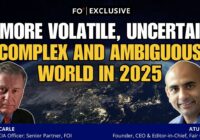

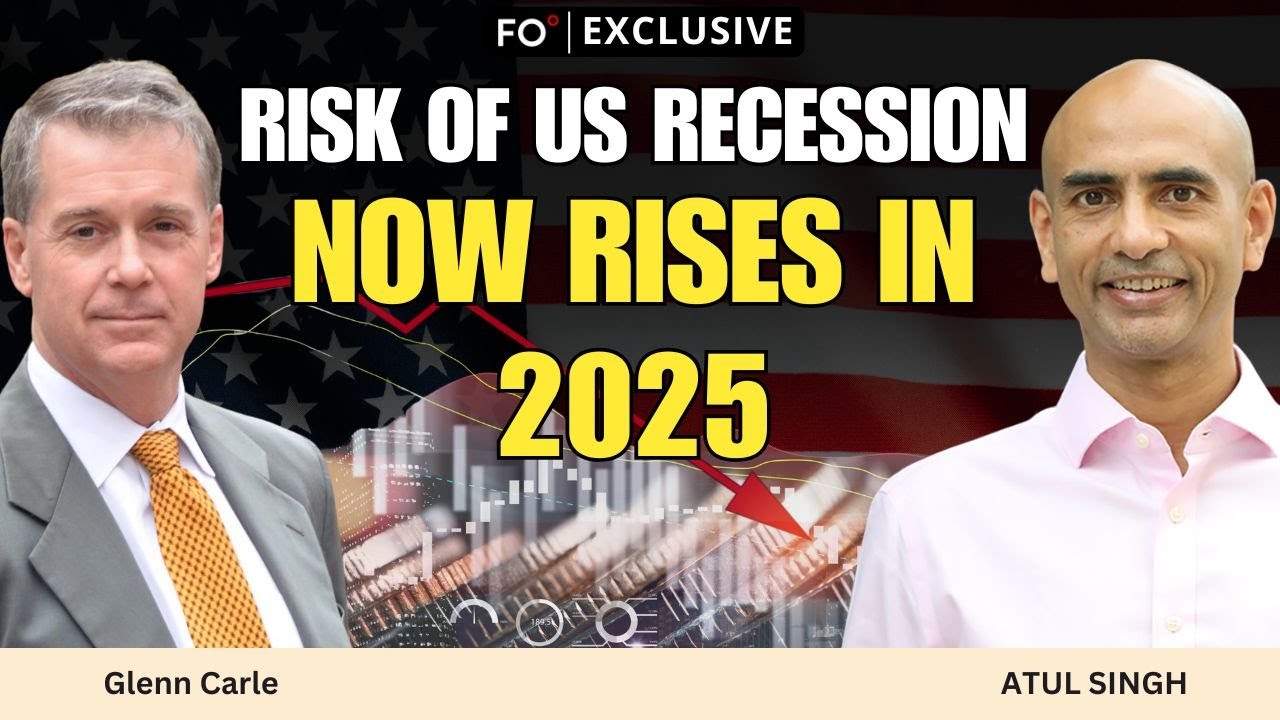






















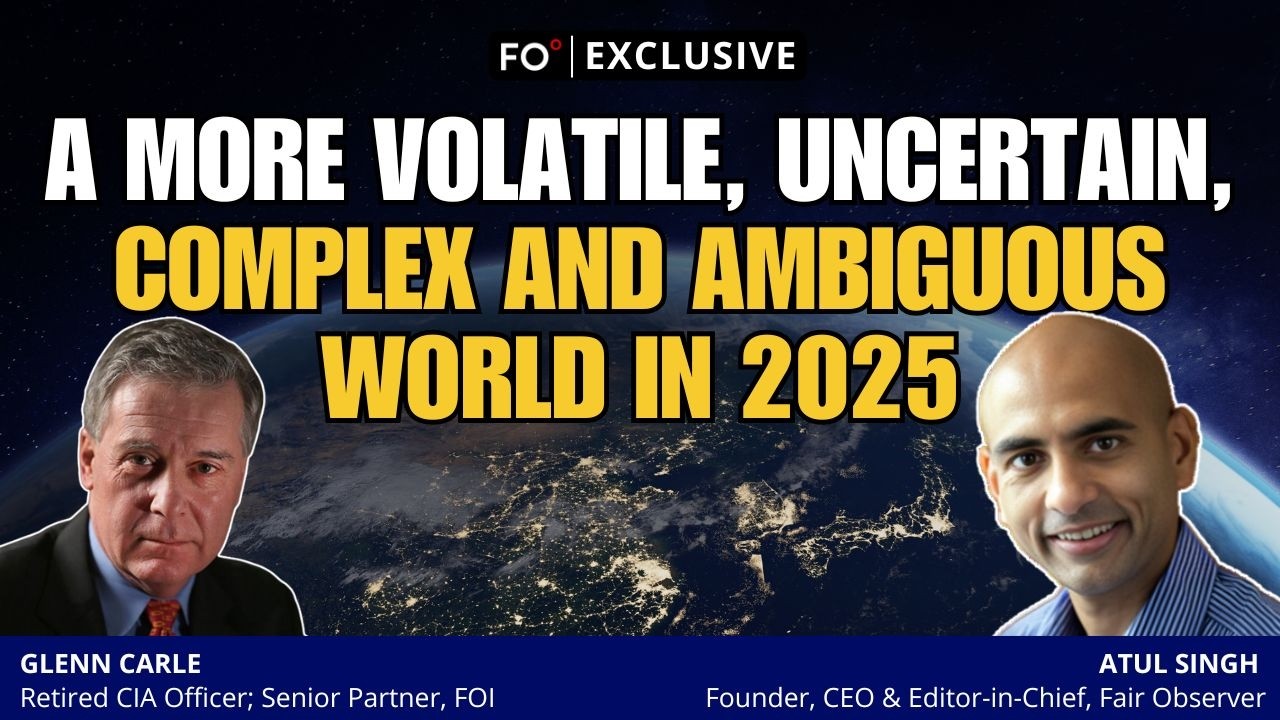


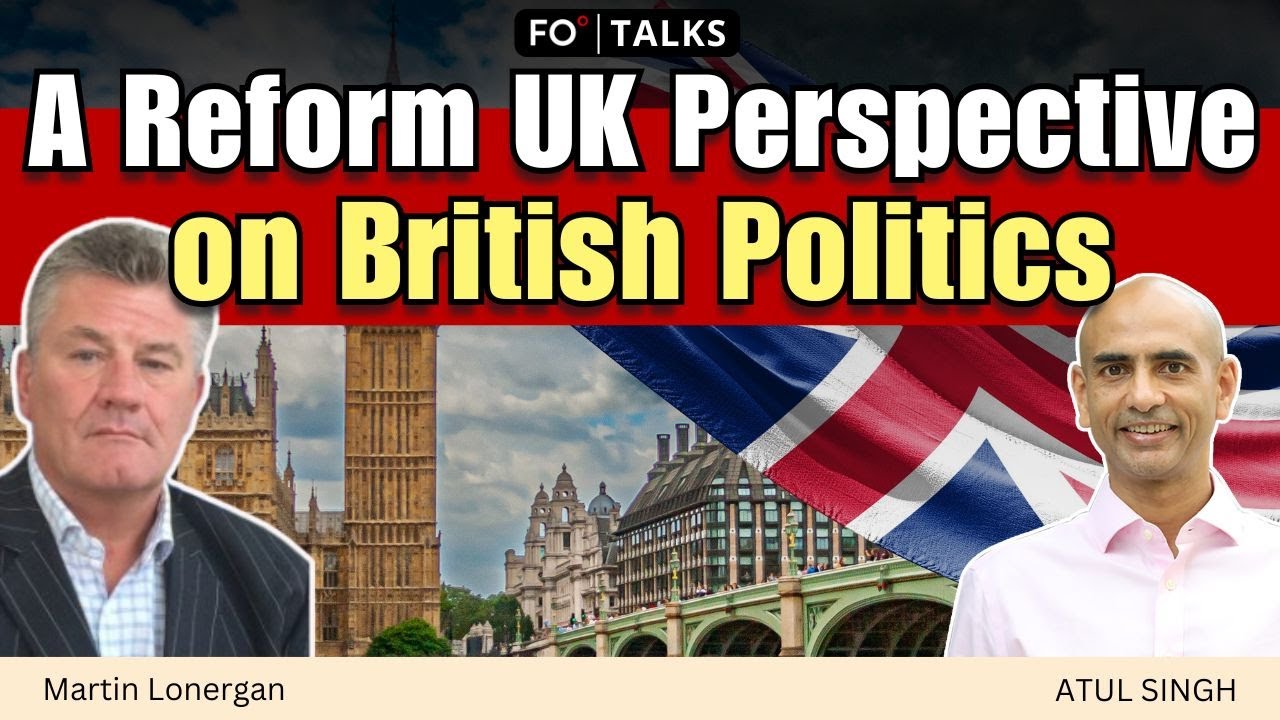


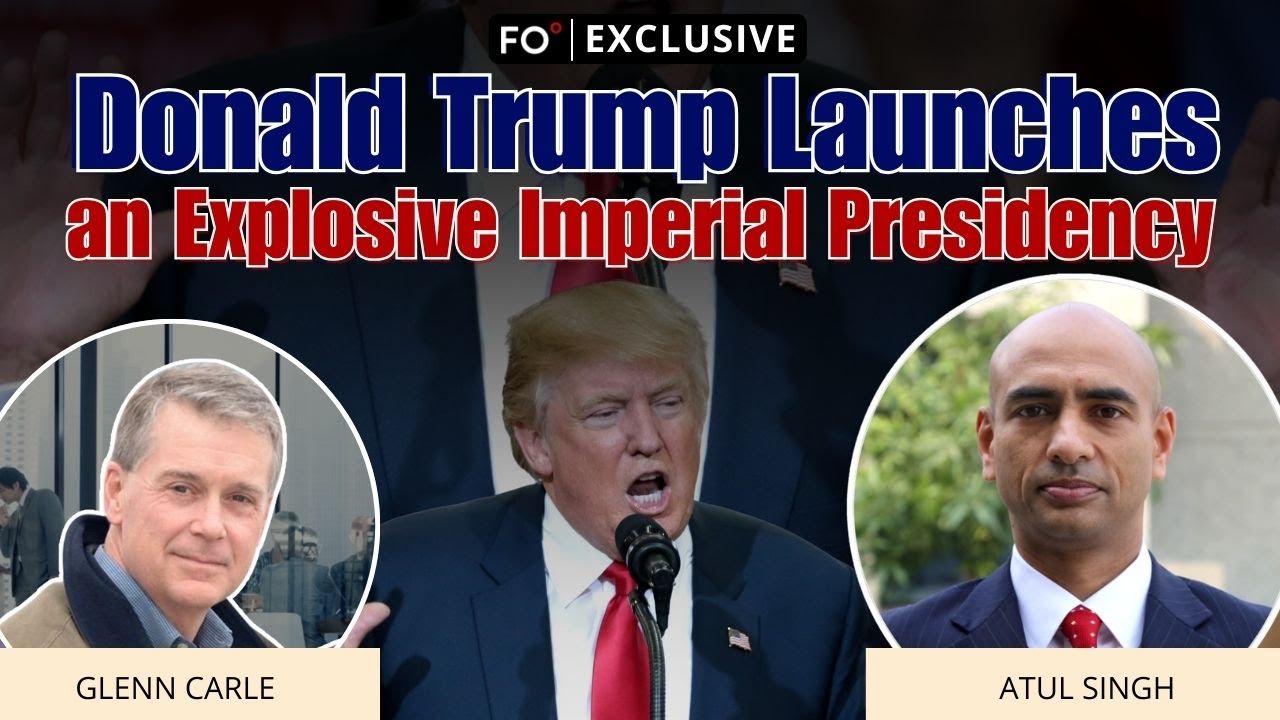

Comment